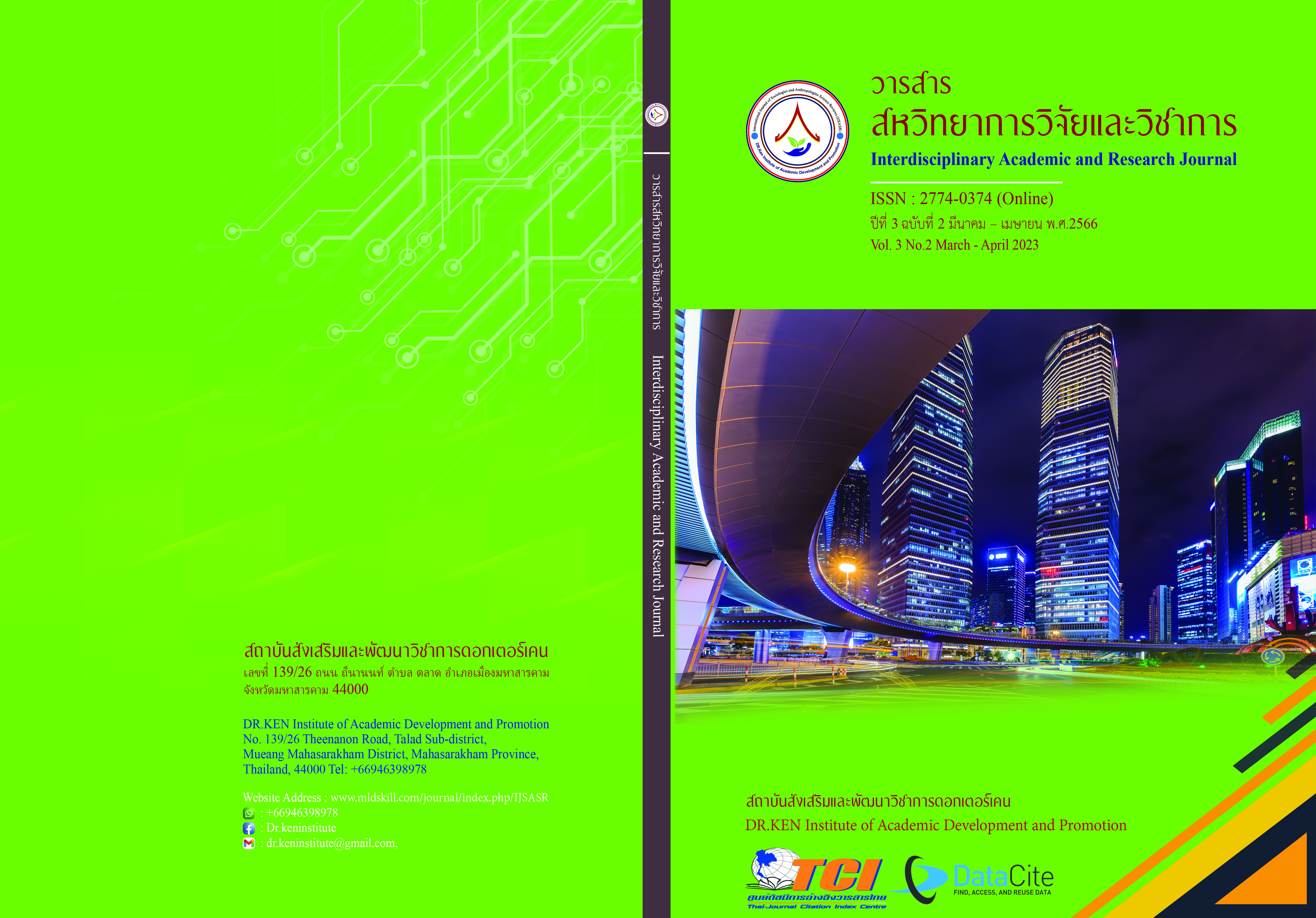The Influence of Democracy on National Happiness: Examination of Multinational Survey Data
DOI:
https://doi.org/10.14456/iarj.2023.110Keywords:
Multinational Data; , Democracy; , HappinessAbstract
Despite being emphasized and supported by many countries, democracy still covered less than half of the world’s countries which, in turn, probably affected people’s happiness. This quantitative research article aimed at examining the influence of national democratic status on citizens’ happiness. The analysis was conducted on the data surveyed by international organizations from 108 countries/governing districts. The data included 2 sets. The first set was the data on national happiness collected by the World Happiness Report Project and the second set was the data on national democratic status collected by EIU. The analysis of the data was the comparison between democratic and happiness trends to find out whether these trends are compatible or not. The regression analysis was also performed to examine the influence of democracy on happiness. This study found that there were 6 countries/governing districts whose happiness increased along with democratic scores. The regression analysis revealed that the average of the democratic scores affected the average of the happiness scores at a significant level of .05. On the other hand, the changes in the democratic scores did not affect the changes in the happiness scores at a significant level of .05. These results led to the conclusion that the continuity of democratic improvement and the average democratic score could affect national happiness.
References
Dorn, D., Fischer, J., Kirchgassner, G., & Sousa-Poza, A. (2007). Is It Culture or Democracy? The Impact of Democracy and Culture on Happiness. Social Indicators Research, 82, 505-526.
Economist Intelligence Unit. (2022). About Us. Retrieved March 26, 2023, from: https://store.eiu.com/about-us
Economist Intelligence Unit. (2022). Democracy Index 2022. Retrieved February 16, 2023, from: https://www.eiu.com/n/campaigns/democracy-index-2022/?utm_source=google&utm_medium=paid-search&utm_campaign=democracy-index-2022&gclid=EAIaIQobChMIpIrTlrzW_QIVmg4rCh30uwBNEAAYAiAAEgLKefD_BwE
Economist Intelligence Unit. (2023). Democracy Index 2022: Frontline Democracy and the Battle for Ukraine. London: Economist Intelligence
Ekici, T., & Koydemir, S. (2014). Social Capital, Government and Democracy Satisfaction, and Happiness in Turkey: A Comparison of Surveys in 1999 and 2008. Social Indicators Research, 118, 1031-1053.
Frey, B., &Stutzer, A. (2000). Happiness Prospers in Democracy. Journal of Happiness Studies, 1 (1), 79-102.
Graham, C., & Pettinato, S. (2001). Happiness, Markets, and Democracy: Latin America in Comparative Perspective. Journal of Happiness Studies: An Interdisciplinary Forum on Subjective Well-being, 2 (3), 237-268.
Inglehart, R. (1988). The Renaissance of Political Culture. American Political Science Review, 82 (4), 1203-1230.
Inglehart, R., Foa, R., Peterson, C., & Welzel, C. (2008). Development, Freedom and Rising Happiness: A Global Perspective 1981-2006. Perspectives on Psychological Science, 3 (4), 264-285.
Inglehart, R., & Ponarin, E. (2013). Happiness and Democracy, 1972-2008. Journal of Siberian Federal University. Humanities & Social Science, 8 (6), 1097-1106.
Loubser, R., & Steenekamp, C. (2012). “Democracy, Wellbeing, and Happiness: A Ten Nation Study” Democracy in crisis? An analysis of various dimensions and sources of support for democracy, 2012, Stellenbosch: Stellenbosch University. South Africa.
Møller, V. (2001). Happiness Trends Under Democracy: Where Will the New South African Set-level Come to Rest? Journal of Happiness Studies, 2 (1), 33-53.
Ott, J. (2010). Good Governance and Happiness in Nations: Technical Quality Precedes Democracy and Quality Beats Size. Journal of Happiness Studies, 11, 353-368.
Thepayasuwan, Y., (2008). Democracy Scorecard. Bangkok: S. Charoen Printing.
World Happiness Report. (2022). World happiness report foreword. Retrieved February 16, 2023, from: https://worldhappiness.report/ed/2022/foreword/
Downloads
Published
How to Cite
Issue
Section
License
Copyright (c) 2023 กัมลาศ เยาวะนิจ

This work is licensed under a Creative Commons Attribution-NonCommercial-NoDerivatives 4.0 International License.
Copyright on any article in the Interdisciplinary Academic and Research Journal is retained by the author(s) under the under the Creative Commons Attribution-NonCommercial-NoDerivatives 4.0 International License. Permission to use text, content, images, etc. of publication. Any user to read, download, copy, distribute, print, search, or link to the full texts of articles, crawl them for indexing, pass them as data to software, or use them for any other lawful purpose. But do not use it for commercial use or with the intent to benefit any business.
















.png)


